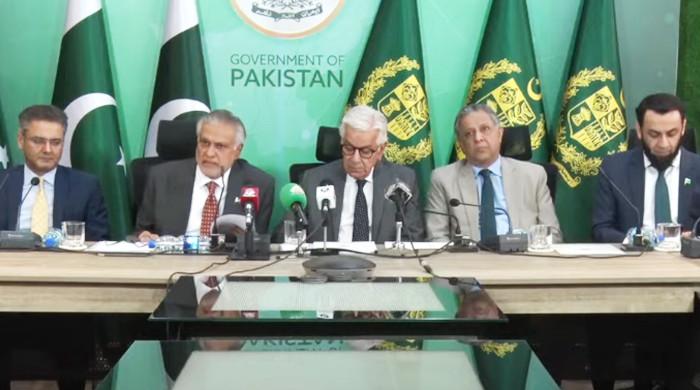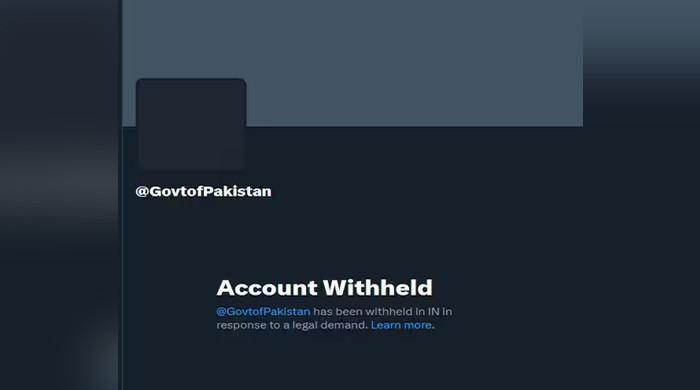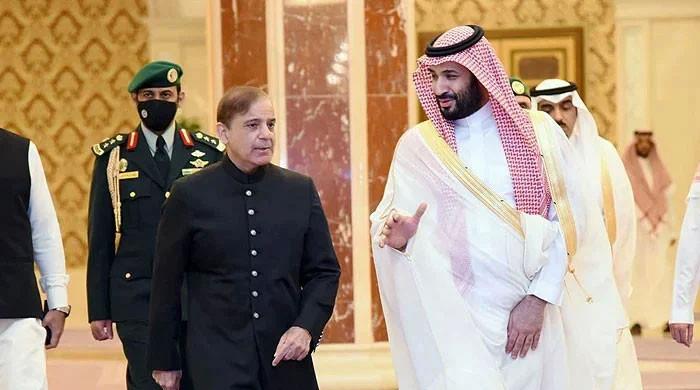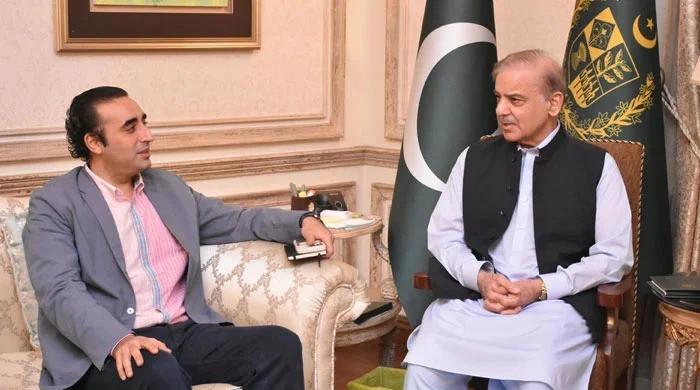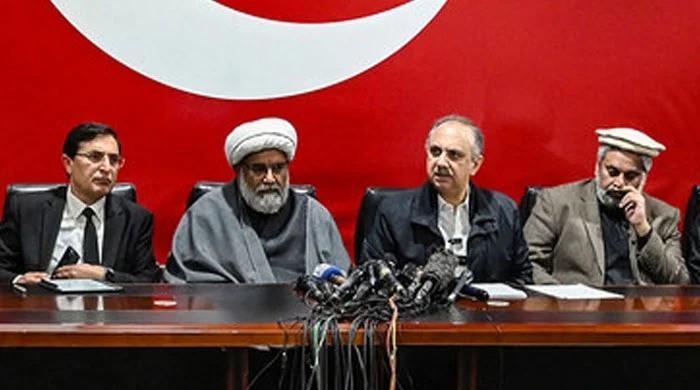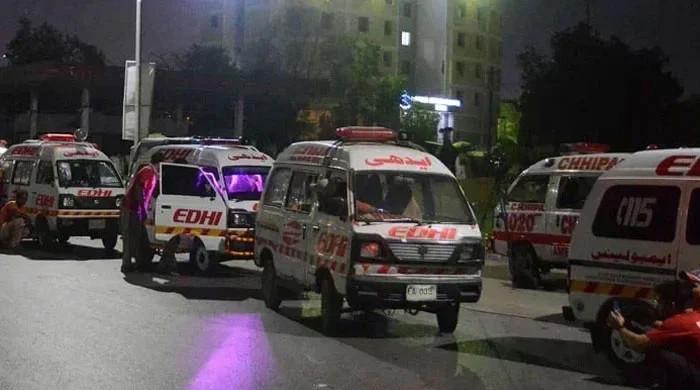A look back at major developments in the Supreme Court in 2019
2019 saw two justices of the Supreme Court take oath as Chief Justice of Pakistan
December 30, 2019
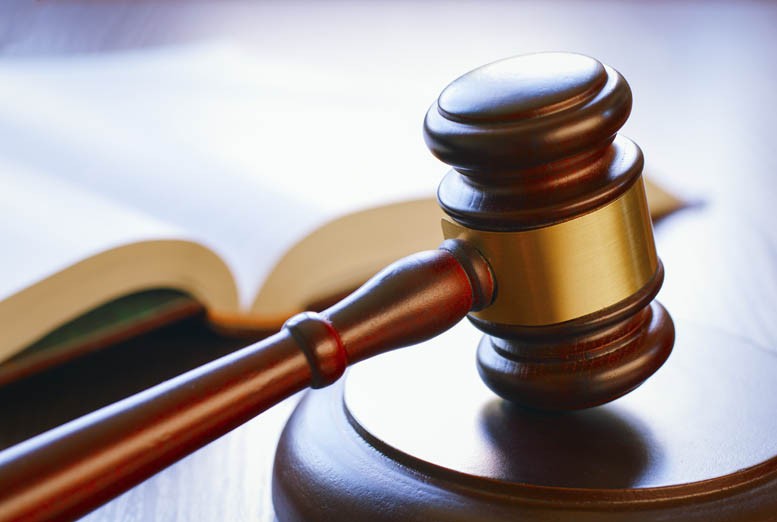
It has been an interesting year for the Supreme Court of Pakistan, which shuffled three chief justices in 2019.
From Mian Saqib Nisar, the top judge when the year began, we moved on to Asif Saeed Khosa and then to the incumbent Chief Justice of Pakistan, Gulzar Ahmed.
Unlike 2018, during which the apex court was seen as indulging in judicial activism and taking a plethora of suo motu actions, the Supreme Court of 2019 under the now retired Justice Khosa exercised restraint, fulfilling a promise the judge had made in his inaugural speech.
Under his watchful eye, the Supreme Court disposed of many long-standing cases and also implemented the e-court system.
The apex court also introduced a new model court system for criminal cases, which was highlighted by Justice Khosa many times in his speeches.
Importantly, the apex court stayed away from political matters, and politicians mostly approached the high courts for relief.
While the jury is still out on Justice Khosa’s tenure, here is a look at major cases dealt with by the apex court in 2019.
Relief for the Sharifs
On January 16, the Supreme Court dismissed the National Accountability Bureau’s (NAB) appeal against the suspension of the Sharif family’s sentences in the Avenfield reference.
The verdict provided much needed relief to the Sharif family, which had been facing the courts since the Panama Papers verdict on April 20, 2017.
In a five-page verdict, justice Khosa had dismissed the accountability watchdog's appeals against former prime minister Nawaz Sharif.
The verdict noted that the appeal was against a person who was already in prison, while the other party in the case was a woman (Maryam Nawaz). The law shows some leniency to women, it had added.
The NAB had approached the top court after the Islamabad High Court on September 19, 2018 suspended the prison sentences awarded to the Sharifs by an accountability court on July 6, 2018.
An accountability court had earlier convicted Nawaz, Maryam and Captain Muhammad Safdar in the Avenfield properties reference and sentenced them to 11 years, eight years and one year, respectively.
'Jirgas violate Pakistan’s international commitments'
After a gap of seven years, the Supreme Court issued its ruling on the status of jirgas in a petition filed by the National Commission for the Status of Women.
The top court, in its verdict, said that jirgas/panchayats were a “flagrant violation of Pakistan’s international commitments”.
The Supreme Court noted that the state must be “conscious and vigilant of such rights on behalf of all citizens whose rights it is obligated to protect under the Constitution and its international commitments”.
The top court also asked the parliament and the executive to consider strict disciplinary action against law enforcement officers who were found to have been negligent in preventing the convening or executions of decisions of jirgas/panchayats despite having knowledge of the same.
The top court noted that jirgas, in the name of preservation of tradition, assume the powers of the judiciary and threaten the very foundations of the rule of law.
SC powers extended to Gilgit-Baltistan
The Supreme Court, in a landmark judgment on January 17, also extended its jurisdiction to the region of Gilgit Baltistan. A seven-judge bench issued the decision after hearing the petitions challenging the powers of Gilgit Baltistan Empowerment and Self-Governance Order, 2009.
In its written order regarding the constitutional status of Gilgit Baltistan, the court granted fundamental rights to the locals and decided that the powers of the top court also extend to the region.
Asia Bibi’s ordeal ends
The Supreme Court on January 29 rejected a review petition challenging the top court's decision to acquit Asia Bibi, a Christian woman enmeshed in a years-long blasphemy row framed on fabricated charges.
A three-member bench headed by former justice Khosa and comprising Justice Qazi Faez Isa and Justice Mazhar Alam Miankhel threw out the petition, filed against the top court’s October 2018 decision to free Bibi from death row, where she had languished for eight years.
The rejection of the petition lifted the last legal hurdle in the case and paved the way for Bibi to leave the country.
Faizabad sit-in verdict
On February 6, the Supreme Court issued its verdict in a suo motu case concerning the sit-in staged by Tehreek-e-Labbaik Pakistan (TLP) at Islamabad's Faizabad Interchange in 2017.
In the verdict, the court ordered the state to prosecute those advocating hate, extremism and terrorism.
In November 2017, the top court had taken suo motu notice of a three-week-long sit-in triggered by a change in the finality-of-Prophethood oath required to be taken by all elected lawmakers.
The change had been termed by the government as a clerical error that slipped through when the government passed the Elections Act 2017. The sit-in was called off after the protesters had reached an 'agreement' with the government.
The case also attracted controversy as, during the hearings, Justice Isa heavily criticised state institutions for their role in the sit-in.
A notable part of the verdict was where the top court directed the government to take action against military personnel who had violated their oath.
A major implication of the case was that in March this year, a reference was filed against Justice Isa in the Supreme Judicial Council. The action by the government was not well-received by the lawyers' representative bodies and will be a case to keep an eye on in 2020.
Memogate case ends
In 2019, the Supreme Court disposed of the long-pending Memogate case it had taken up in 2011 under then chief justice Iftikhar Chaudhry.
While wrapping up the case, the apex court remarked that it was the state's prerogative to bring back former ambassador Hussain Haqqani and initiate a case against him.
During the hearing, one of the remarks that made headlines came from justice Khosa, who questioned whether the state, Constitution, Pakistan Army and democracy in the country were so weak that they could be shaken by a simple memo.
The Memogate scandal had first emerged in 2011, when Pakistani-American businessman Mansoor Ijaz claimed to have received an 'anti-army' memo from Haqqani, who was then Pakistan's envoy in Washington. The memo was addressed to the US's then chairman of joint chiefs of staff, Admiral Mike Mullen.
In 2012, a judicial commission was tasked to probe the case, and it concluded that the memo was authentic and authored by the former envoy. The commission said the purpose of the memo was to convince American officials that Pakistan's civilian government was 'pro-US'.
The scandal was taken to the Supreme Court by then-opposition leader Nawaz Sharif and several others, and led to Haqqani's resignation and subsequent exit from the country.
The case was resurrected on February 1, 2018 when the Supreme Court constituted a three-member bench to resume hearing of the controversial case.
SC rules on false testimony
On March 20, the court issued a definitive ruling on the legal status of testimonies that have either been found to have a component that is false or are false in their entirety.
The apex court, in its judgment, ordered courts to not allow any leniency against those resorting to false testimonies and to reject testimonies if even a part of them were based on lies.
The top court also ruled that legal proceedings could be initiated against any witness found to have resorted to deliberate falsehood.
“Our judicial system has suffered a lot as a consequence of the above mentioned permissible deviation from the truth and it is about time that such a colossal wrong may be rectified in all earnestness," the judgment stated.
SC defines terrorism
In March, justice Khosa formed a seven-member bench to determine the definition of the term “terrorism”.
The former top judge had observed that cases which fall under terrorism charges have remained ambiguous since 1997.
According to the apex court’s verdict, issued on October 20, "terrorism is any violence carried out for religious, ideological or political objectives, to spread fear among the government and the masses, to inflict damage to life or property, to fan religious sectarianism and to carry out attacks against the law enforcement agencies or security forces."
General Bajwa extension case
Just a few days before his retirement, justice Khosa took up a petition challenging the extension granted to incumbent Chief of Army Staff (COAS) General Qamar Javed Bajwa.
The mere taking up of the petition sent shockwaves through Pakistan. Many questions were raised by the apex court during the hearing of the case, which became a major source of embarrassment for the ruling Pakistan Tehreek-e-Insaf government.
The Supreme Court finally allowed the federal government to grant a six-month extension to COAS Bajwa, but directed that Parliament legislate on the army chief's tenure and appointment in the meanwhile.
In its detailed verdict, penned by Justice Mansoor Ali Shah, the top court stated that the bench "explored the scope of Article 243 of the Constitution, reviewed the Pakistan Army Act, 1952 and the Pakistan Army Act Rules, 1954".
In its ruling, the Supreme Court noted that the Pakistan Army Act “falls deficient of the structural requirements for raising and maintaining an Army”. The apex court noted that "no tenure or age of retirement for the rank of General is provided under the law.”
The court warned that in the absence of legislation on the matter within six months, the institutional practice of retirement of a General on completion of the tenure of three years "shall stand enforced".
The government has already filed a review petition on the verdict, which would be a test case for newly installed Chief Justice Gulzar Ahmed.





